Refund Guaranteed
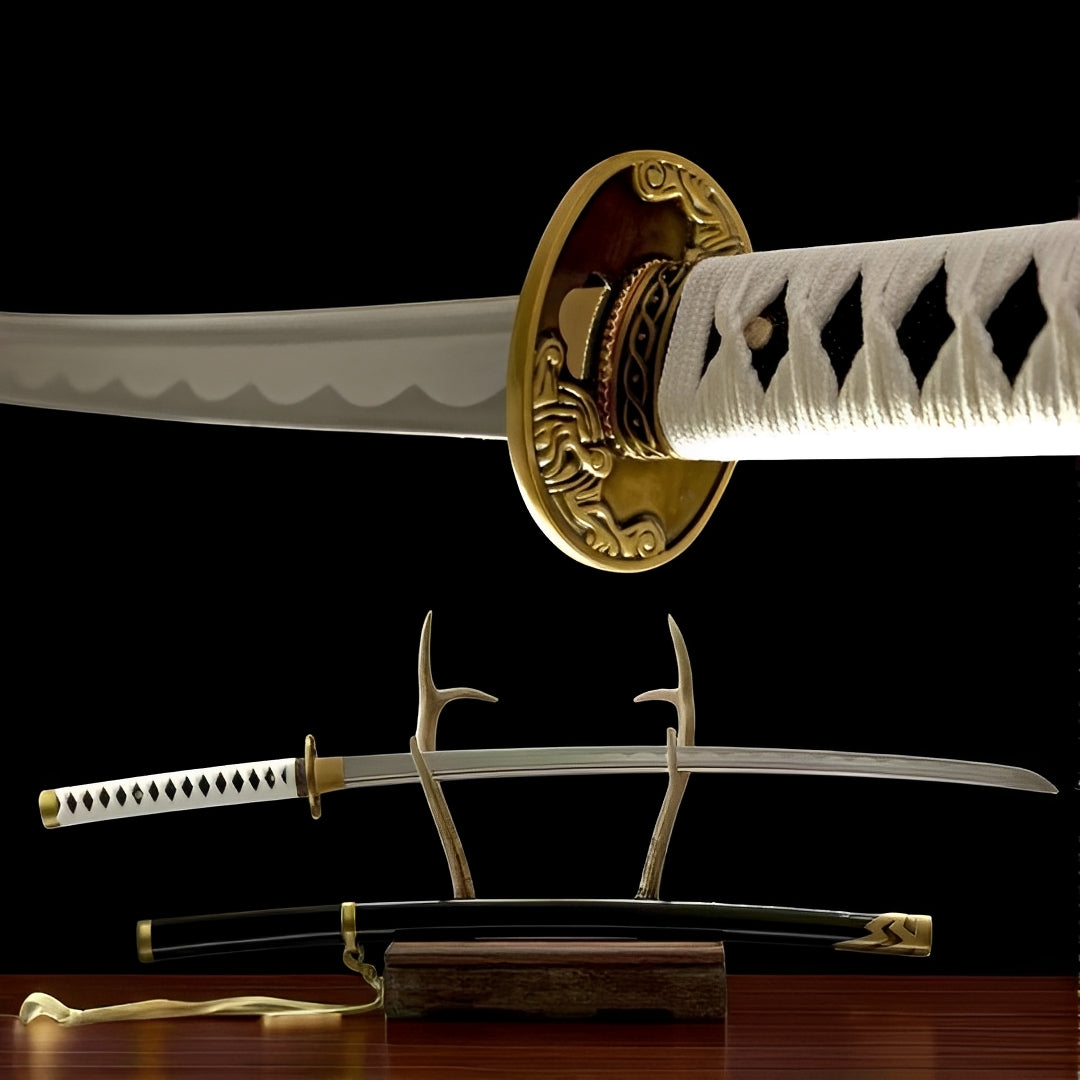
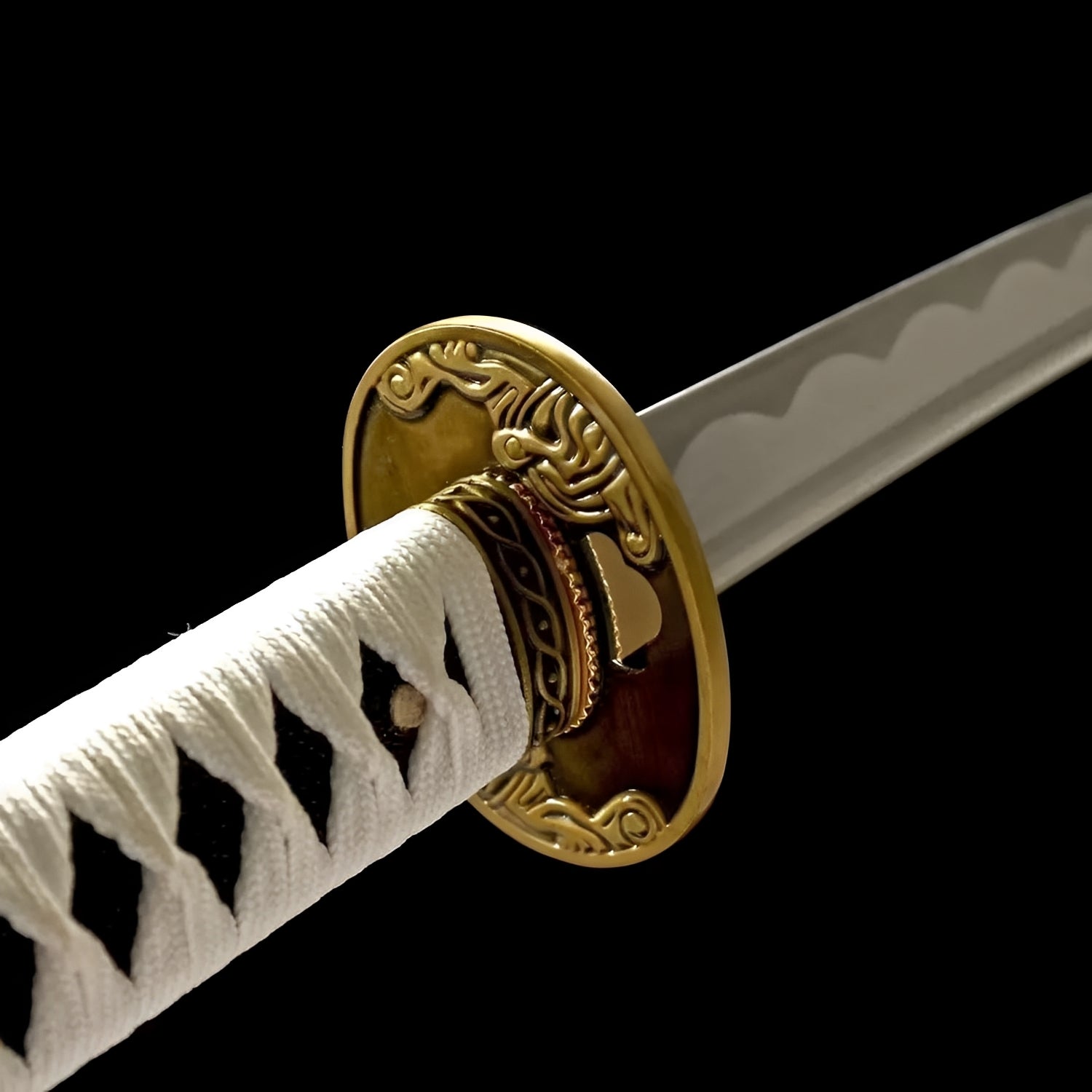
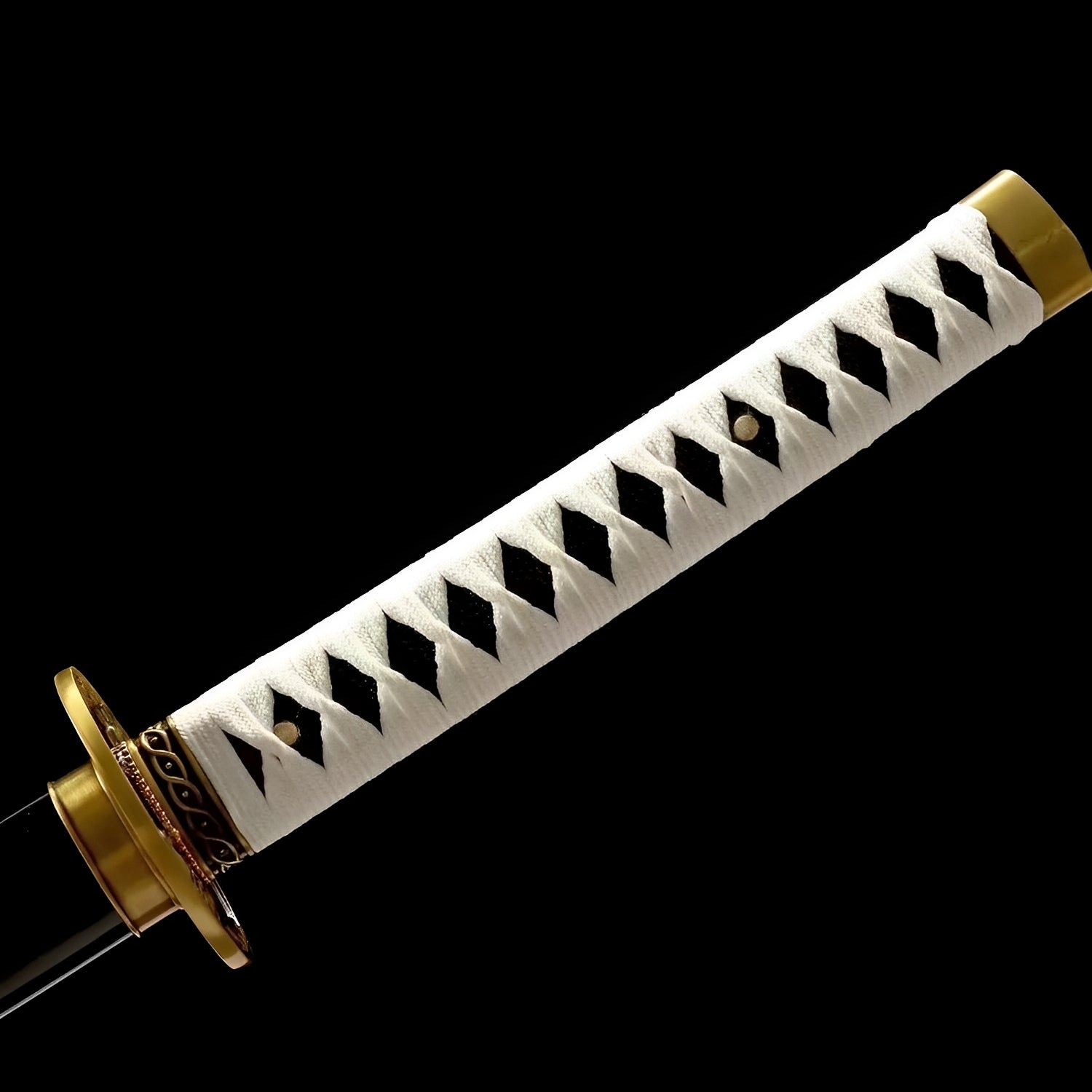
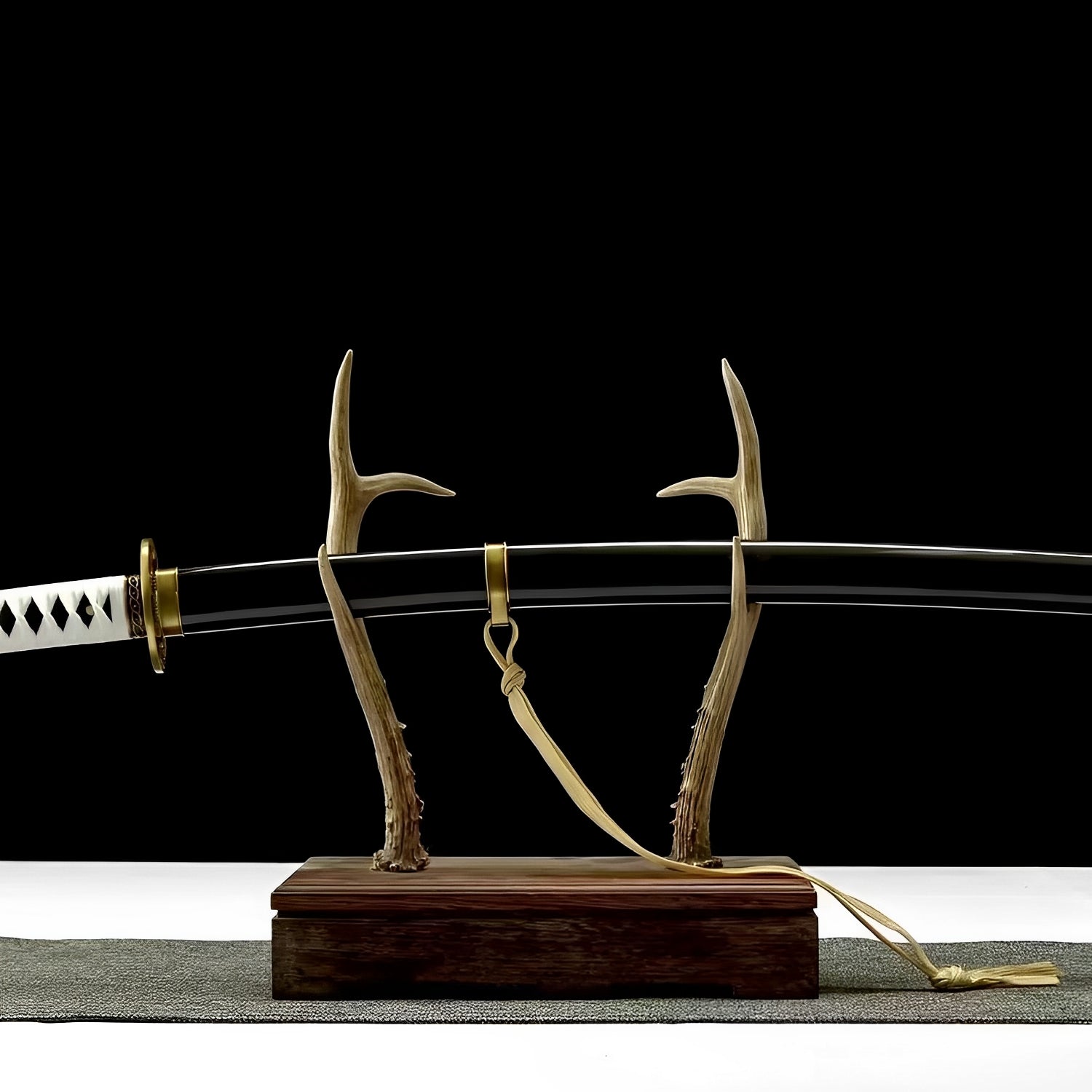
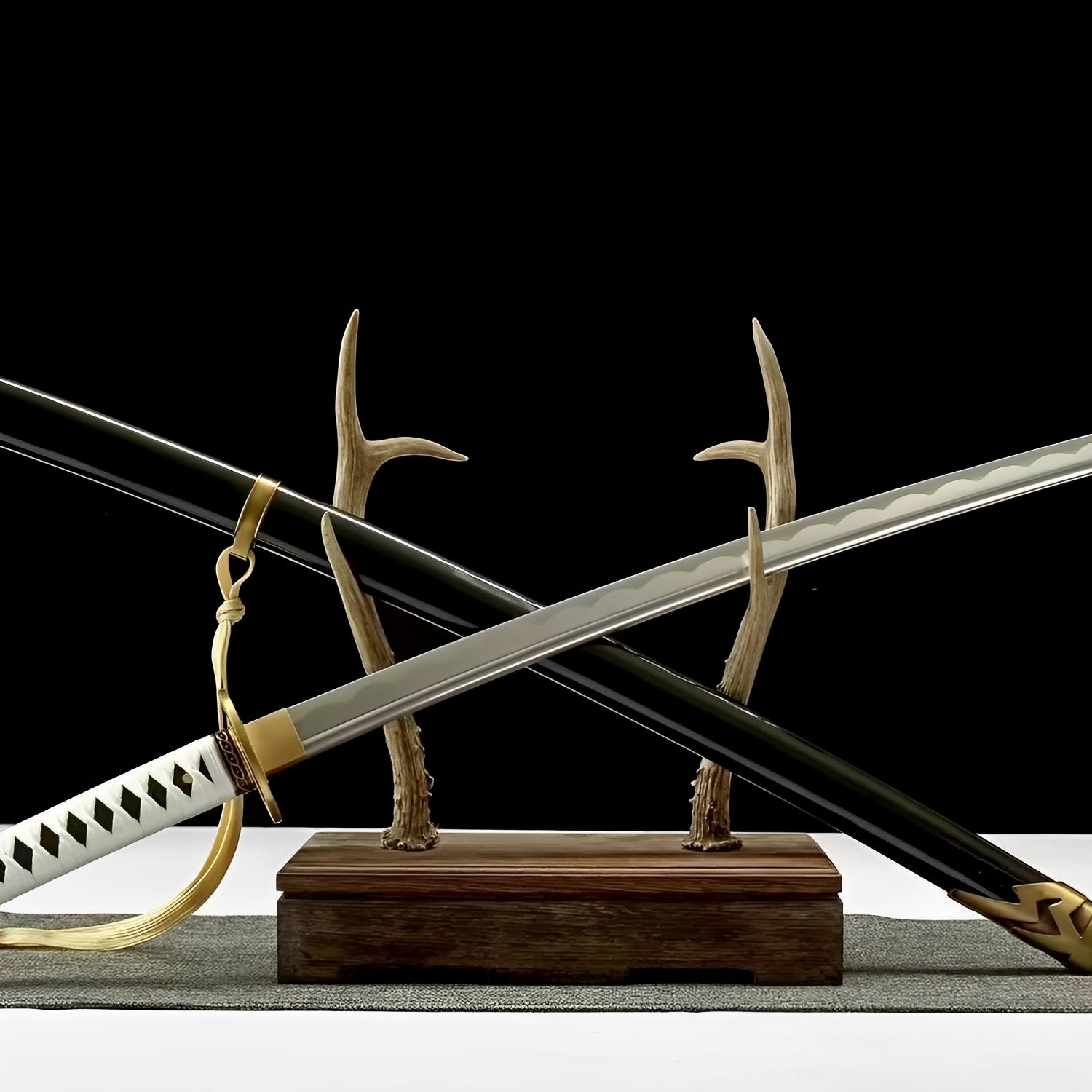
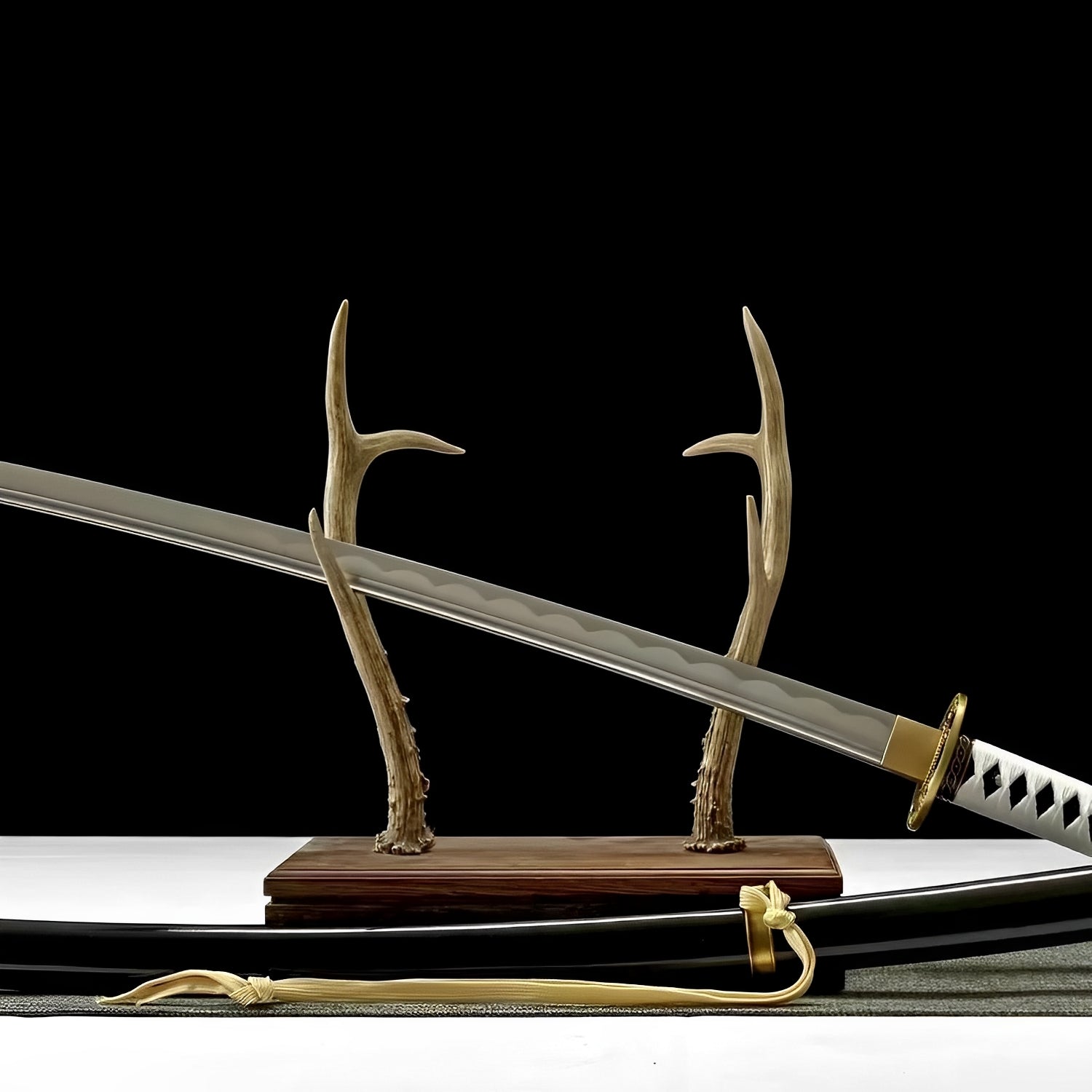
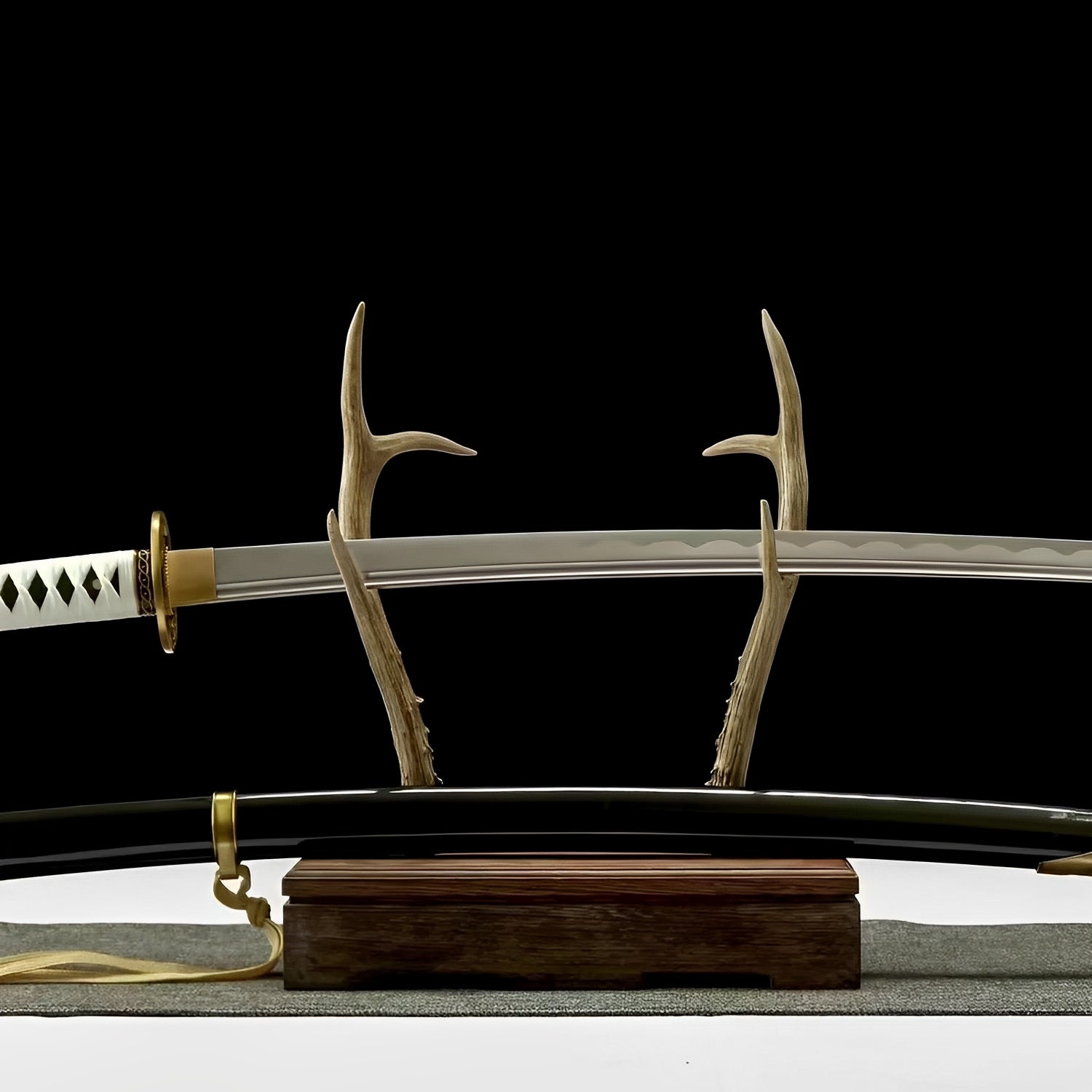
Why choose us
1060 Steel
Forged Blade
Collector Quality
Trusted Globally
Inspired by Japan
Vergil Yamato Katana - ヤマト
Included with your order



Note: Engraving placement and orientation may vary by blade model (hamon, geometry, and flat area).
Free Shipping over $250
No Bots, No AI
Refund Guaranteed
Free Shipping over $250
No Bots, No AI
Our team is here to help with any questions or concerns.
We’re always happy to assist you — don’t hesitate to reach out.
Why choose us
1060 Steel
Forged Blade
Collector Quality
Trusted Globally
Inspired by Japan

Vergil Yamato Katana - ヤマト
Specifications
- Handmade
- SHARP
- Blade: 1060 Carbon Steel
- SAGEO & ITO in cotton
- Full Tang
- Synthetic Rayskin
- Iron Tsuba
- Total size: 105cm / 41 (in)
- Blade size: 72cm / 28 (in)
- Blade width: 3,2cm / 1.2 (in)
- Blade thickness: 0,7cm / 0.27 (in)
- Handle size: 30cm / 11.8 (in)
Vergil Yamato Katana - Dimensional Edge Sons of Sparda
Command reality itself with Vergil's Yamato, blade transcending physical steel into metaphysical weapon. This legendary Devil May Cry sword refuses mortal limitations - power cutting through dimensions not flesh, space itself parting before edge that doesn't merely slice but separates, each swing opening portals between worlds, the entire weapon embodying half-demon warrior's obsessive pursuit of power proving his humanity means nothing. Not tool for those accepting limitations but instrument for someone whose defining phrase remains "I need MORE POWER," asking whether you'll accept what you are or chase perfection destroying everything making you human.
Power That Cuts Dimensions
Yamato transcends every sword discussed previously through single unique capability: it cuts space itself. Not metaphorically through speed, not symbolically through skill, but literally - creating dimensional rifts, opening portals between demon and human realms, separating concepts that shouldn't separate (like human and demon halves of single being). This dimensional blade exists beyond physics, its edge sharp enough severing reality's fabric, proving some weapons channel forces beyond mere steel and skill.
Vergil specifically uses Yamato's dimensional cutting for signature technique "Judgment Cut" - slashing space at range, the very air becoming weapon, invisible strikes appearing instantly at target's location bypassing all defenses. Enemies die without seeing attack coming, without opportunity blocking or dodging, because how do you defend against space itself attacking? The instant death sword represents combat philosophy: overwhelming power executed with perfect precision eliminates all variables, no room for chance, no possibility failure if you're simply that much stronger.
The weapon's power inheritance matters - Yamato belonged to Sparda (legendary demon who rebelled against demon-kind protecting humans, Vergil's father), one of two swords Sparda left his twin sons. Where Dante received Rebellion (representing resistance, chaos, improvisation), Vergil inherited Yamato (representing order, precision, absolute control). That division defined brothers' entire philosophies: Dante embraces humanity's messy adaptability, Vergil rejects it pursuing demonic power's perfect efficiency.
DMC lore establishes Yamato can separate and reconnect anything - used to split Vergil himself into human (V) and demon (Urizen) components during DMC5, demonstrating weapon's reality-warping capabilities extend beyond mere cutting into fundamental existence manipulation. The reality severance blade becomes tool for someone believing problems solve through sufficient power application, that complications exist only because you're not strong enough yet.
Gaming collectors recognize Yamato as one of most iconic video game weapons period - it defined Devil May Cry's aesthetic, established series' style-focused combat, influenced entire action game genre. Owning Yamato means participating in gaming history spanning 20+ years across multiple console generations.
Silver Perfection Aesthetic
The immaculate white-silver coloration creates Yamato's most recognizable feature, establishing visual opposition against Dante's red Rebellion. Where Dante's weapons scream chaos and personality, Yamato whispers cold perfection and absolute control. This precision instrument blade refuses unnecessary decoration, every element serving function, the aesthetic itself becoming statement about efficiency over excess.
The white specifically suggests purity - but not moral purity (Vergil commits atrocities pursuing power), rather purity of purpose, single-minded focus eliminating distractions. That monochrome restraint mirrors Vergil's personality: no humor, no attachment, no deviation from goal. The obsessive focus sword becomes extension of wielder's uncompromising nature.
Traditional Japanese swords featured white components (shirasaya), but usually as storage mountings rather than combat furniture. Yamato flips that convention - the white isn't protective covering but permanent aesthetic declaring this blade needs no ornamentation because perfection requires no justification. The simplicity itself becomes intimidating: something this visually restrained either represents ultimate refinement or belongs to someone who doesn't care about your opinion either way.
The golden tsuba provides sole warm accent, its ornate scrollwork creating interesting contradiction - Vergil claims rejecting humanity's weaknesses yet appreciates aesthetic beauty (his combat style called "motivated" by fans specifically because he pursues power with such elegant precision). That golden decoration suggests he hasn't completely eliminated human appreciation for beauty despite trying.
Brothers' Eternal Rivalry
Understanding Yamato requires understanding Dante - the twin brother Vergil simultaneously loves and resents, whose easy acceptance of humanity Vergil views as weakness yet secretly envies, whose improvised chaos consistently defeats Vergil's planned precision through sheer adaptability. The brother blade exists in perpetual opposition to Dante's Rebellion, their swords clashing across multiple games, their philosophies remaining irreconcilable despite neither wanting actually killing the other.
That rivalry defines both characters: Vergil obsessively trains pursuing power believing only absolute strength matters; Dante goofs around protecting random strangers because that's what feels right. Vergil views emotions as weakness; Dante channels emotions into strength. Vergil fights using perfect technique; Dante improvises using whatever works. Their swords literally embody these philosophies - Yamato's clean quick-draw iaijutsu versus Rebellion's adaptable combo-focused style.
The tragedy: both brothers cope differently with identical trauma (mother killed by demons while they were children, believing themselves too weak preventing it). Vergil concluded "I need MORE POWER" becoming obsessed with strength at humanity's expense; Dante concluded "I should've been stronger" dedicating life protecting others from similar losses. The trauma response blade represents specific maladaptive coping - pursuing power compensating for powerlessness rather than processing the trauma itself.
Fans specifically love DMC3's brother dynamic - the equal rivalry where neither dominates, where each represents valid approach to their circumstances, where final battle leaves both wounded and separated rather than declaring winner. Yamato becomes symbol for one half of that duality, incomplete without Dante's Rebellion providing opposition defining it through contrast.
Quick-Draw Mastery
Vergil's signature combat style emphasizes iaijutsu - drawing blade from sheath with single motion combining draw and strike, the fastest possible attack eliminating delay between decision and execution. That split-second advantage determines victory when opponents possess equal power, the quick-draw becoming metaphor for Vergil's overall approach: perfect preparation eliminates uncertainty, overwhelming first strike ends fights before they begin.
The iaijutsu perfection blade specifically suits Vergil's personality - no wasted movement, no unnecessary flourishes, nothing but efficient application of maximum power at precise moment. His attacks don't flow continuously like Dante's combos; they occur in discrete perfect strikes, each one calculated for maximum effect, the pauses between attacks deliberate rather than hesitant.
Traditional iaijutsu emphasized mental discipline as much as physical technique - the ability remaining absolutely still until perfect moment arrives, the patience waiting for opponent's single exploitable mistake, the confidence that when you move, victory is inevitable. Vergil embodies that philosophy completely: he doesn't fight panicked or desperate; he fights with absolute certainty that his power suffices, his technique perfects, his victory foregone conclusion requiring only execution.
Gaming mechanically, Yamato gameplay emphasizes precision timing over button-mashing - players must learn exact input timing, understand frame-perfect execution, master positioning enabling maximum efficiency. That demanding gameplay loop attracts specific player personality: those who enjoy perfecting execution, who value clean flawless victories over messy successful ones, who find satisfaction in optimized performance rather than improvised adaptation.
Motivated Collector Culture
The DMC community specifically embraced "motivated" as Vergil descriptor - his intense focus on power pursuit, his refusal accepting anything less than perfection, his dead-serious demeanor contrasting Dante's constant jokes. That meme culture created passionate fanbase keeping decades-old franchise relevant, the "I AM THE STORM THAT IS APPROACHING" lyrics from "Bury the Light" becoming iconic, Vergil's power fantasy resonating with gamers who identify with his intensity.
This meme culture blade exists at intersection of serious gaming history and playful fan engagement - collectors own Yamato both because it's genuinely iconic weapon from influential series AND because participating in community requires acknowledging Vergil's motivated status, understanding inside jokes about plastic chairs and child support, recognizing that fandom enhances rather than diminishes appreciation.
Investment value favors weapons from completed beloved franchises maintaining active communities. DMC continues getting games, merchandise, crossover appearances ensuring Vergil remains culturally relevant. That sustained visibility makes Yamato safer investment than weapons from abandoned franchises whose collectible markets collapse when fan enthusiasm wanes.
The gaming legacy piece particularly appeals to action game enthusiasts who grew up with DMC defining genre standards, who remember when Yamato represented cutting-edge game design, whose skill development happened through mastering Vergil's demanding moveset. That nostalgic connection creates emotional value exceeding monetary worth.
Display considerations welcome pairing Yamato with Dante's Rebellion - showing brothers' duality, representing complete DMC collection, creating visual dialogue between opposed philosophies. Alternatively, solo display emphasizing Yamato's perfection without Dante's chaos competing for attention honors Vergil's preference for separation.
Care Instructions: Maintain this dimensional blade understanding it represents perfection pursued obsessively - no half measures, no "good enough," only flawless maintenance matching Vergil's own standards. The white-silver finish shows imperfections mercilessly; keep pristine through constant vigilance. Polish golden tsuba preserving ornate detail without damaging delicate scrollwork. Handle knowing this sword channels particular psychology: the belief that problems solve through sufficient power, that weakness eliminates through discipline, that humanity's messiness is flaw requiring correction rather than feature enabling adaptation. Consider this blade cautionary reminder that obsessive power pursuit costs everything making life worth living - Vergil gained incredible strength yet lost brother, potential family, peace of mind, the human connections that gave life meaning beyond mere existence. Display where it prompts reflection: when does pursuing excellence become unhealthy obsession? When does strength become isolation? When does perfection cost more than failure? The motivated warrior achieved his goal yet ended up split between human and demon, neither half whole, both parts suffering. Power came at the price of everything else.
I need MORE POWER. The storm approaches. The alpha and omega. Foolishness, Dante, foolishness.
Legal Disclaimer
By purchasing from Katana Corp, you acknowledge and agree that:
- You are at least 18 years of age (or the age of majority in your jurisdiction).
- You are solely responsible for verifying and complying with all local laws and import regulations before placing an order.
- Some countries prohibit the importation of swords entirely. Katana Corp is not responsible for orders delayed, seized, or refused by customs authorities.
- All katanas and related products are sold strictly as decorative and display items. They are not intended or certified for combat use.
- Depending on the jurisdiction, swords may legally be considered bladed weapons, subject to specific restrictions or prohibitions.
- Katana Corp disclaims all liability for any injury, damage, or legal consequences resulting from misuse, abuse, or unlawful use of its products.
For full details, please refer to our Terms of Service.
Care & Maintenance
To maintain your katana's appearance and performance over time, we recommend:
- Regularly wiping the blade with a soft cloth to remove fingerprints and moisture.
- Applying a light coat of choji oil to prevent rust (for carbon steel blades).
- Storing the sword in a dry place, preferably inside its saya.
- Avoiding direct contact with hard surfaces to preserve sharpness and finish.
For more care tips, check our full maintenance guide in the FAQ section.
Behind the Blade
Every katana we offer carries the essence of centuries-old craftsmanship.
More than just a weapon, the katana symbolizes discipline, honor, and mastery.
Our artisans draw inspiration from traditional forging methods to ensure each blade reflects the spirit of the samurai — strength, precision, and soul.
Owning one is not just about aesthetics — it’s about carrying a piece of that legacy.
User Experience
This katana is designed to offer a perfect balance between blade and handle.
Its ergonomic tsuka (handle) allows a secure two-handed grip, while the weight distribution ensures smooth, fluid movement.
Whether for training, display or cutting practice, handling feels natural and precise.
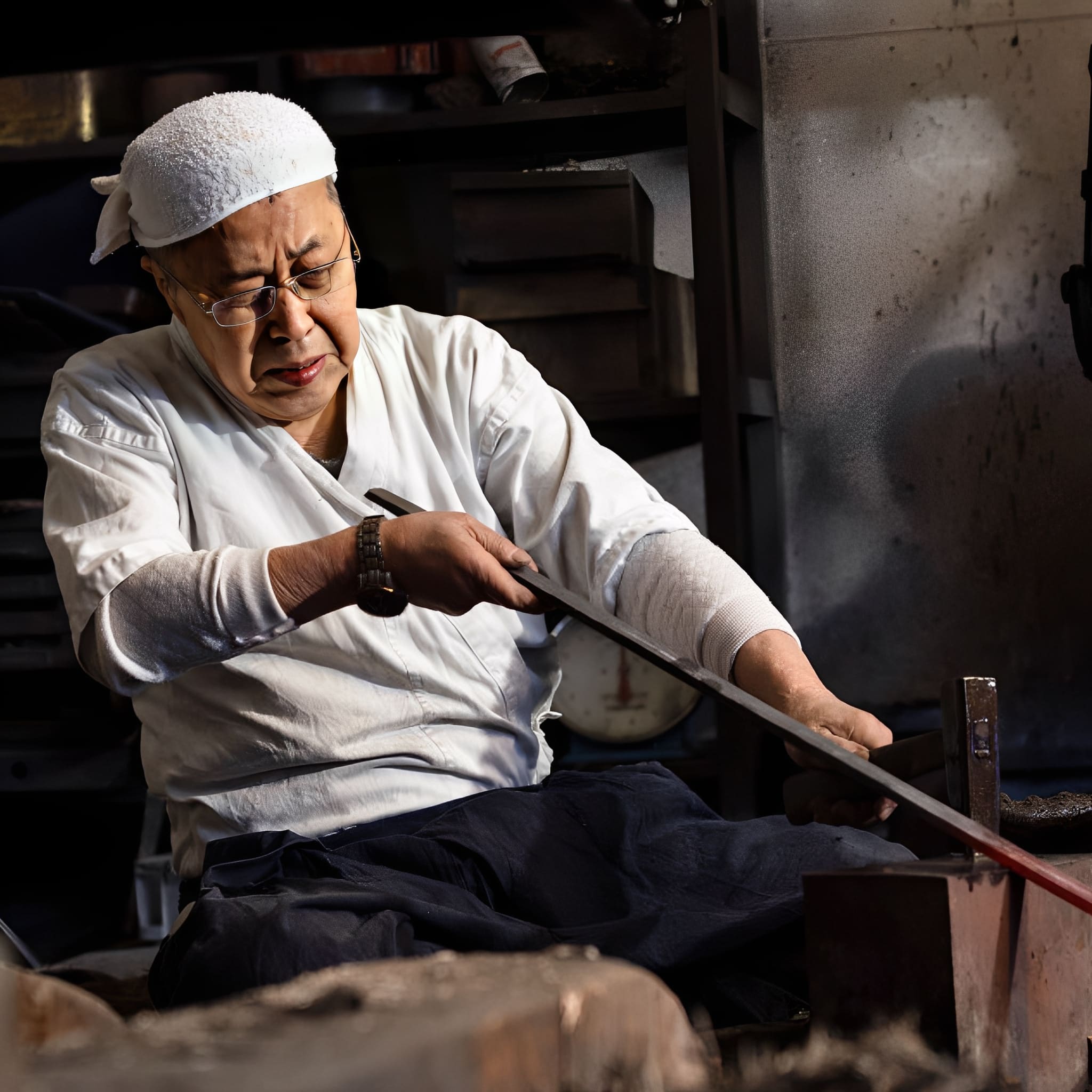
The Art of Traditional Forging
Each katana we craft is born from centuries of samurai tradition.
Our master smiths shape every blade by hand, folding the steel to achieve unmatched strength, flexibility, and beauty.
This time-honored process is not just about creating a weapon? it’s about preserving a legacy of discipline, honor, and artistry.

Materials Chosen Without Compromise
We select only the highest-grade steels and authentic fittings to ensure every katana is both a masterpiece and a reliable companion.
From the flawless hamon line to the perfectly balanced tang, each detail is carefully inspected to meet the highest standards of performance and aesthetics.
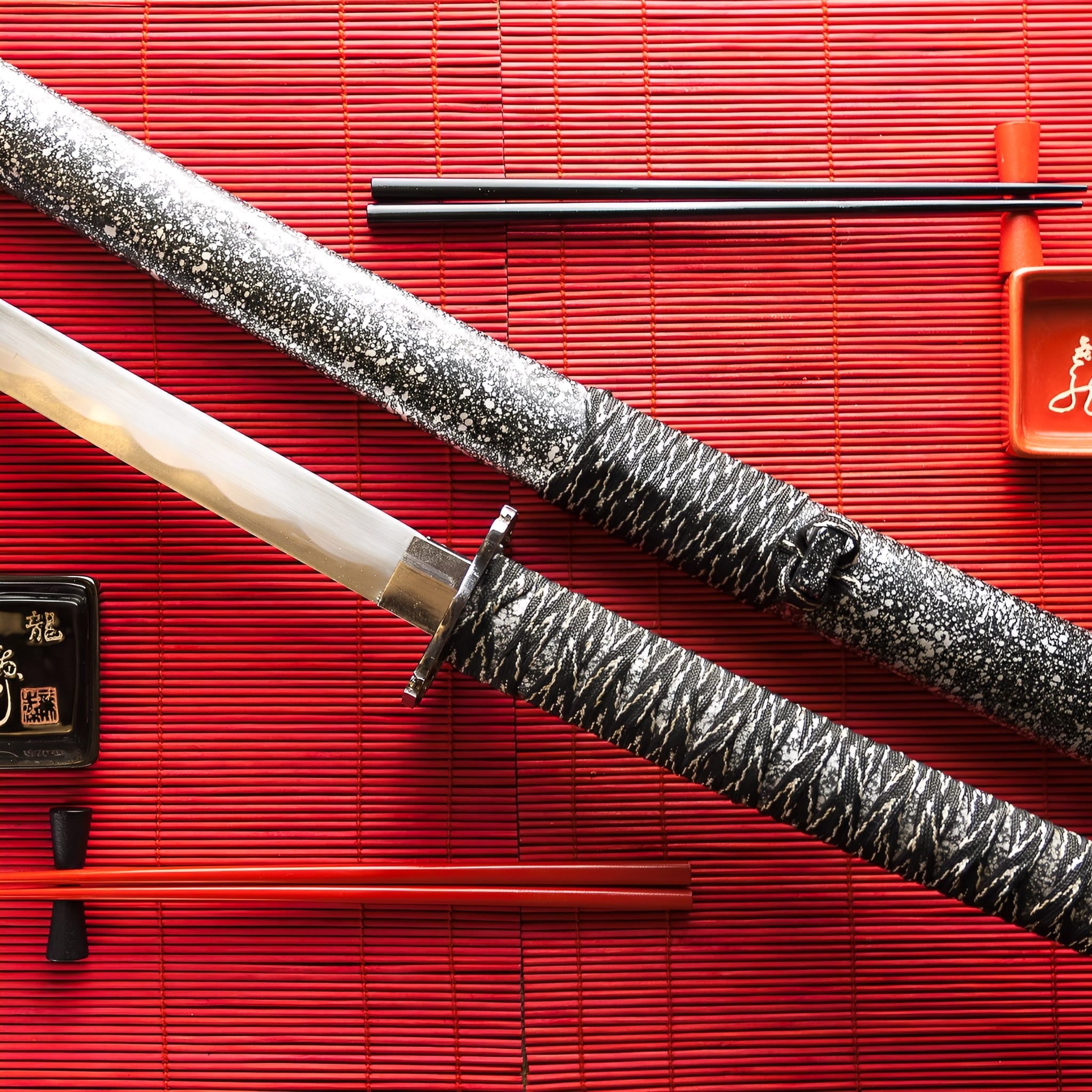
More Than a Sword, A Lifelong Legacy
Owning a handmade katana is an experience that goes beyond the blade itself. It’s holding history, tradition, and craftsmanship in your hands.
Whether displayed as a work of art or wielded with precision, your katana will stand as a symbol of timeless skill and dedication for generations to come.
-
Key Destinations
United States: 5–7 days
Canada: 5–7 days
Australia: 6–9 days
Denmark: 4–6 days
Netherlands: 3–5 days
Sweden: 4–6 days
Switzerland: 3–5 days
Finland: 5–7 days
Singapore: 6–8 days -
Central European Partners
France: 2–3 days
Germany: 3–5 days
Spain: 4–6 days
Italy: 4–6 days
Belgium: 3–5 days
Austria: 4–6 days
Ireland: 4–6 days
Poland: 4–6 days
Portugal: 4–6 days -
Extended EU Network
Czechia: 4–6 days
Hungary: 4–6 days
Slovakia: 4–6 days
Slovenia: 5–7 days
Romania: 5–7 days
Bulgaria: 5–7 days
Croatia: 5–7 days
Serbia: 5–7 days
Estonia: 5–7 days
Latvia: 5–7 days
Lithuania: 5–7 days
Luxembourg: 3–5 days
Greece: 5–8 days -
FAQ’s
Visit our FAQs page to find answers to common questions.